What happens to your recycling?
We are often asked what happens to your recycling materials once we have collected them. We work with a number of contracted suppliers who process recycling materials for us. The recycling merchants require a separated, clean, high quality product.
What happens to some of the materials we collect
Aerosol, aluminium and steel cans
All these kinds of cans are made from tinplated steel and aluminium. Both these metals are recyclable and are used by the steel industry. Much of the aluminium ever produced is still in use today.
Cardboard
Most cardboard is re-pulped and recycled back into cardboard.
Food and drink cartons
The majority of cartons are used to generate energy from waste, however some cartons are pulped and the aluminium foil and polythene are separated from the fibres. The fibre is recovered to make new paper products and the remaining mix of plastic and aluminium may then be used in furniture.
Electrical appliances
Are collected and processed at a recycling plant in accordance with Environment Agency requirements. Where possible component parts will be removed and reused.
Glass
Is sorted, crushed, screened. The recycled glass is then supplied back to glass manufacturers to produce new glass bottles and jars. Mixed coloured glass can also be used for aggregate in the construction industry.
Garden waste
Garden waste is composted on an industrial scale and used as a soil improver on land reclamation projects.
Paper
Used paper is sent to a paper mill which processes the paper and turns it into recycled paper. This can be printed on to make your daily newspapers.
Plastic
In general, plastic is either melted down directly and moulded into a new shape, or shredded into flakes then melted down before being processed into granulates. There is a wide range of products made from recycled plastic such as fleece jackets, fencing, garden furniture, water butts and compost bins.
Rubble
Is screened, crushed and used as foundation for roads and buildings.
Textiles
Clothes and textiles are hand sorted, graded, baled. Some are exported for re-use and others are shredded.
Textiles that cannot be reused are shredded before being reprocessed into new items. Industrial quality "blankets" which protect equipment whilst being transporting is one example of what recycled textiles may become.
Wood
Wood can be chipped to make MDF board or Chipboard to make new furniture.